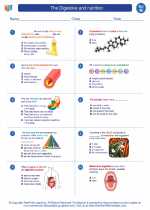The Effect
In science, the term "effect" refers to the result or consequence of an action or process. It is an important concept in understanding cause-and-effect relationships in various scientific phenomena.
Types of Effects
There are different types of effects that can be observed in science:
- Direct Effect: This occurs when a change in one variable directly causes a change in another variable without any intermediary factors.
- Indirect Effect: In contrast to a direct effect, an indirect effect occurs when a change in one variable causes a change in another variable through intermediary factors or processes.
- Positive Effect: This refers to a situation where a change in one variable leads to a favorable outcome or impact on another variable.
- Negative Effect: Conversely, a negative effect occurs when a change in one variable leads to an unfavorable outcome or impact on another variable.
Examples of Effects in Science
Effects can be observed in various scientific disciplines. Some common examples include:
- Chemical Reactions: The effect of temperature on the rate of a chemical reaction.
- Physics: The effect of force on the motion of an object.
- Biology: The effect of environmental changes on the growth of plants.
- Environmental Science: The effect of pollution on ecosystems.
Studying Effects in Science
To understand and study effects in science, it is important to:
- Identify the variables involved and their relationships.
- Conduct controlled experiments to isolate specific effects.
- Use appropriate measurement and data collection techniques to quantify the observed effects.
- Analyze the data to draw conclusions about the effects and their significance.
Study Guide Questions
Here are some study guide questions to help you comprehend the concept of effects in science:
- What is the definition of an "effect" in science?
- How are direct and indirect effects different from each other?
- Provide an example of a positive and a negative effect in a scientific context.
- What are some common scientific disciplines where effects are studied?
- What steps can be taken to study and understand effects in scientific phenomena?
[Effect] Related Worksheets and Study Guides:
.◂Science Worksheets and Study Guides Eighth Grade. The Digestive System & Nutrition
Study Guide The Digestive and nutrition
The Digestive and nutrition  Worksheet/Answer key
Worksheet/Answer key The Digestive and nutrition
The Digestive and nutrition  Worksheet/Answer key
Worksheet/Answer key The Digestive and nutrition
The Digestive and nutrition  Worksheet/Answer key
Worksheet/Answer key The Digestive and nutrition
The Digestive and nutrition  Vocabulary/Answer key
Vocabulary/Answer key The Digestive and nutrition
The Digestive and nutrition  Vocabulary/Answer key
Vocabulary/Answer key The Digestive and nutrition
The Digestive and nutrition  Vocabulary/Answer key
Vocabulary/Answer key The Digestive and nutrition
The Digestive and nutrition  Vocabulary/Answer key
Vocabulary/Answer key The Digestive and nutrition
The Digestive and nutrition  Vocabulary/Answer key
Vocabulary/Answer key The Digestive and nutrition
The Digestive and nutrition 

 Worksheet/Answer key
Worksheet/Answer key
 Worksheet/Answer key
Worksheet/Answer key
 Worksheet/Answer key
Worksheet/Answer key
 Vocabulary/Answer key
Vocabulary/Answer key
 Vocabulary/Answer key
Vocabulary/Answer key
 Vocabulary/Answer key
Vocabulary/Answer key
 Vocabulary/Answer key
Vocabulary/Answer key
 Vocabulary/Answer key
Vocabulary/Answer key

The resources above cover the following skills:
Reading Standards for Literacy in Science and Technical Subjects
Craft and Structure
Determine the meaning of symbols, key terms, and other domain-specific words and phrases as they are used in a specific scientific or technical context relevant to grades 6-8 texts and topics.